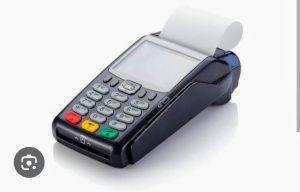

By Dada Ahmed, Lokoja.

(C) Swiftbills.
A seemingly deepening scarcity of cash in Lokoja, Kogi State,has forced Point of Sale (POS) operators to seek alternative ways to sustain their businesses, with many now buying naira from fuel stations due to banks’ inability to provide enough cash.
This situation is worsening the financial strain on residents, increasing transaction costs, and exposing the fragility of Nigeria’s cash-dependent economy.
Sunny, a POS operator in Gadumo Quarters, shared his frustration with The Reporters on Monday. He narrated how the cash scarcity has disrupted his operations and increased the cost of providing financial services to customers.
“On Friday, I spent six hours at my bank trying to withdraw N100,000, only to be told I could get just N10,000 due to cash shortages,” he lamented.
Frustrated, Sunny added that he visited another bank, only to face the same challenge. With no other option, he resorted to buying cash from a nearby fuel station, where attendants charged him N1,500 for every N100,000.
“To cover the extra cost, I’ve had to increase my withdrawal charges. Instead of the usual N200 per N10,000, I now charge N300. This is the only way I can stay in business,” he explained.
The ripple effect is being felt by customers who now pay higher transaction fees, further straining household budgets. Many POS operators, unable to adapt, have shut down their businesses, leaving residents with fewer cash withdrawal options.
This development highlights the economic and social impact of Nigeria’s cash shortages.
For many small businesses and individuals in Lokoja, access to cash is not just about convenience—it’s a necessity for survival.
Until banks improve cash availability, residents will continue to bear the burden of higher transaction costs and limited access to financial services, according to some POS customers who also spoke with our correspondent on the disturbing development.


